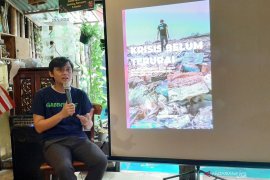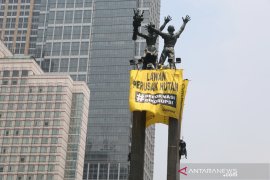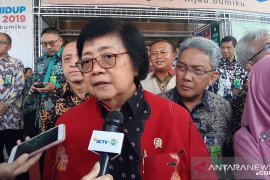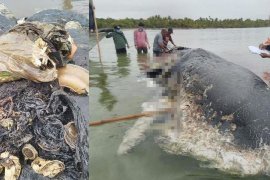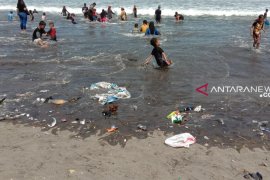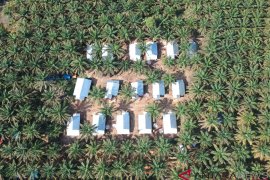The Environment NGO made the appeal during the launch of the Greenpeace Toxic Free Water project entitled "Citarum Nadi Ku, Mari Rebut Kembali" (Let`s Take Back Our Citarum), here Tuesday.
"Greenpeace believes that the vision of a clean Citarum is achievable. We will work together with all stakeholders of this river to take back the Citarum. Poll results confirm that communities know that industrial pollution is poisoning their river, and has very dangerous impacts on their health, environment and livelihoods. With this project we hope to inspire people and catalyze a collective effort to enact solutions to save the Citarum," said Ahmad Ashov Birry, Campaigner, Greenpeace Southeast Asia.
The launch coincided with the release of a public opinion poll conducted by LP3ES that estimates that 81% of people in and around Bandung agree that industries should stop polluting Western Java`s most important freshwater source.
As part of the launch, activists from Greenpeace and PKK DAS Citarum (Citarum Community Activists) unfurled a giant banner with a "?".
Community members also collected river water in a glass jar, as a symbol that Indonesia`s people don`t know what toxic poisons are killing their beloved river.
"Issues of land degradation, erosion, sedimentation, floods, drought and industrial pollution are consequences of massive land use change in Citarum`s basin for the sake of industrial corporations. Therefore PKK recommends spatial policy reform, reconstruction of green areas around Citarum basin, rehabilitation of critical land in the upstream, implementation of clean production and strict law enforcement," said Deni Riswandini from PKK DAS Citarum.
The Citarum river provides freshwater for most of West Java Province and also supplies 80 percent of Jakarta. However, the river is recognized as one of the dirtiest in the world. (*)
Editor: Aditia Maruli Radja
Copyright © ANTARA 2011

